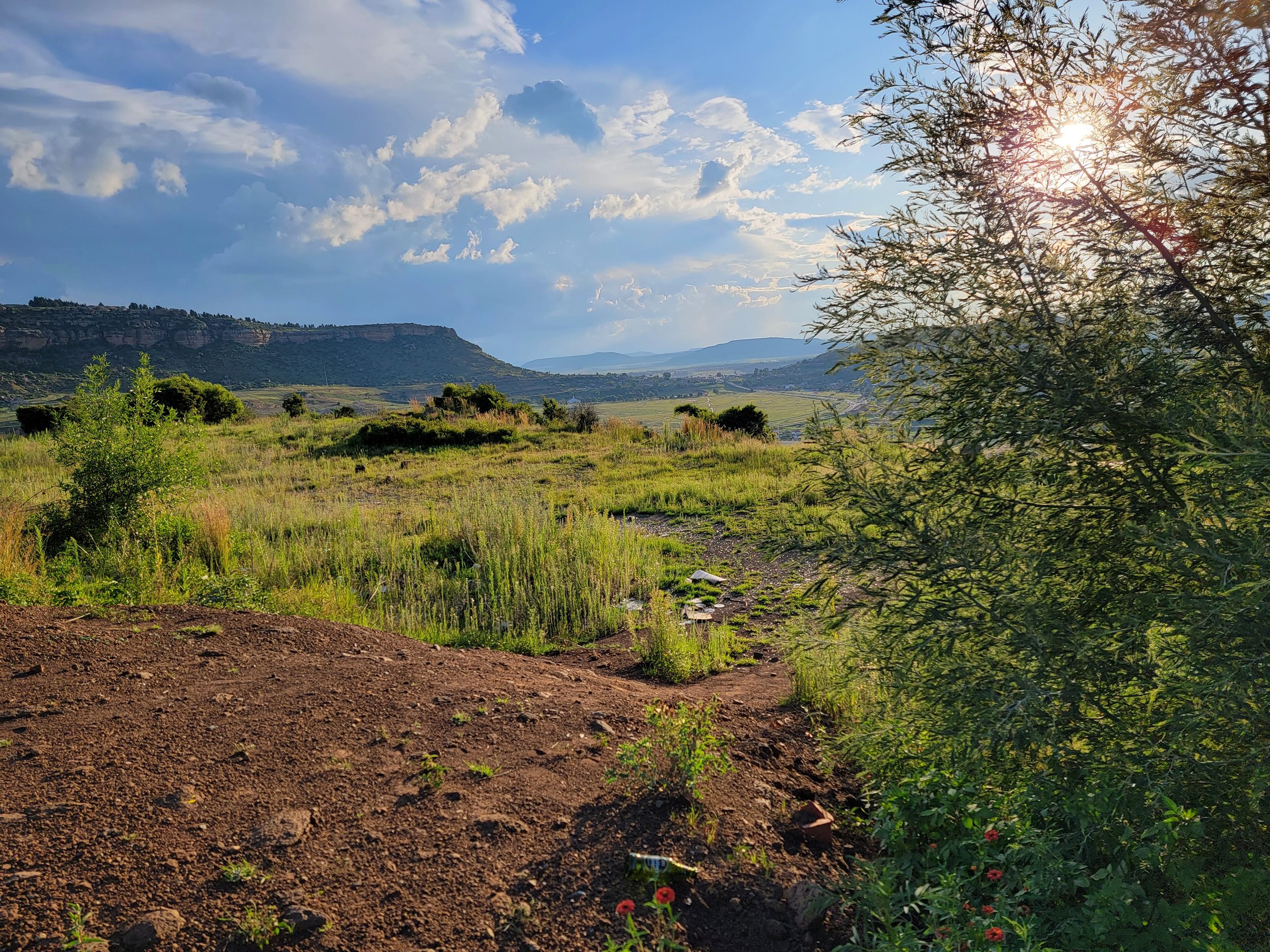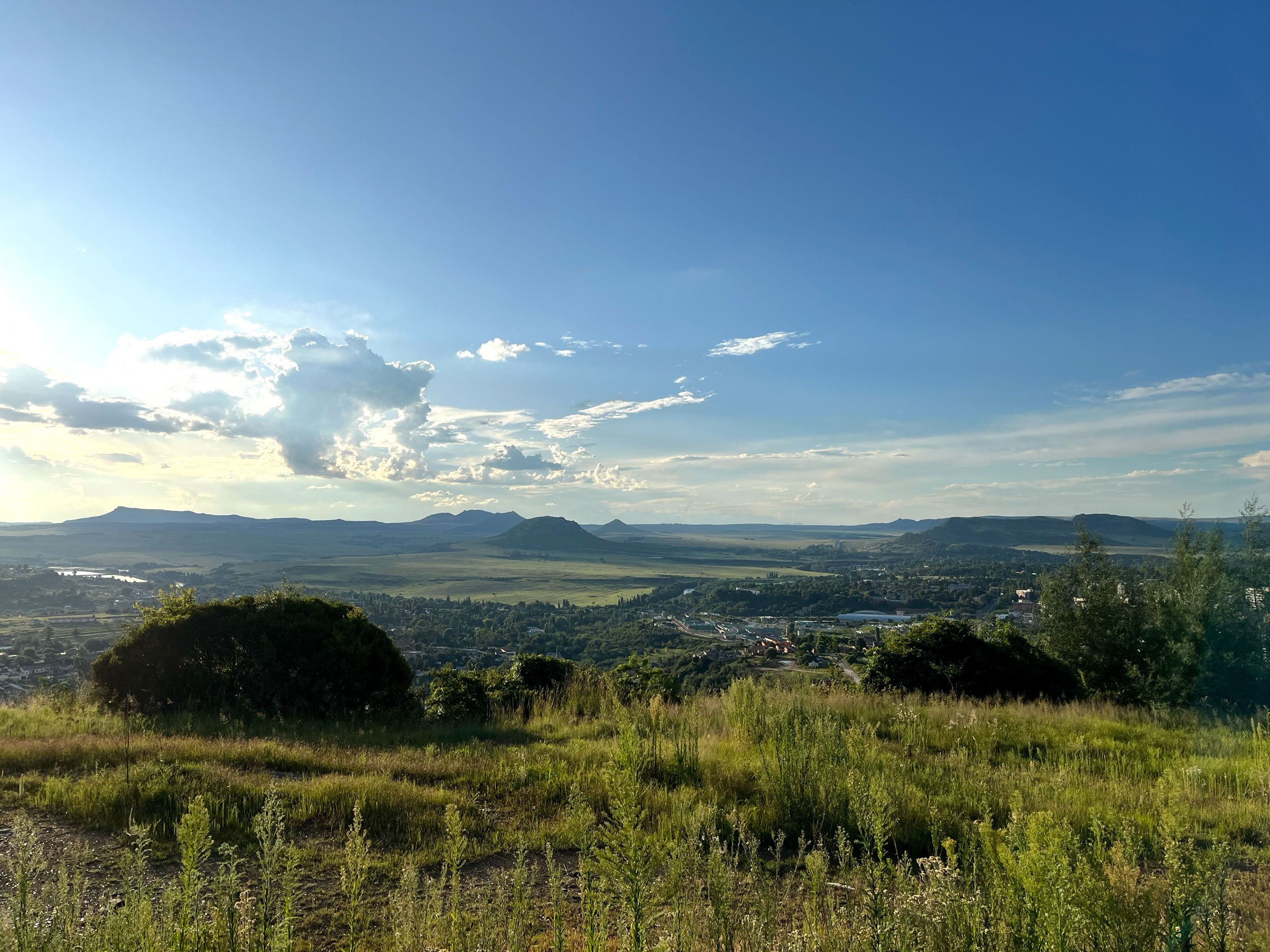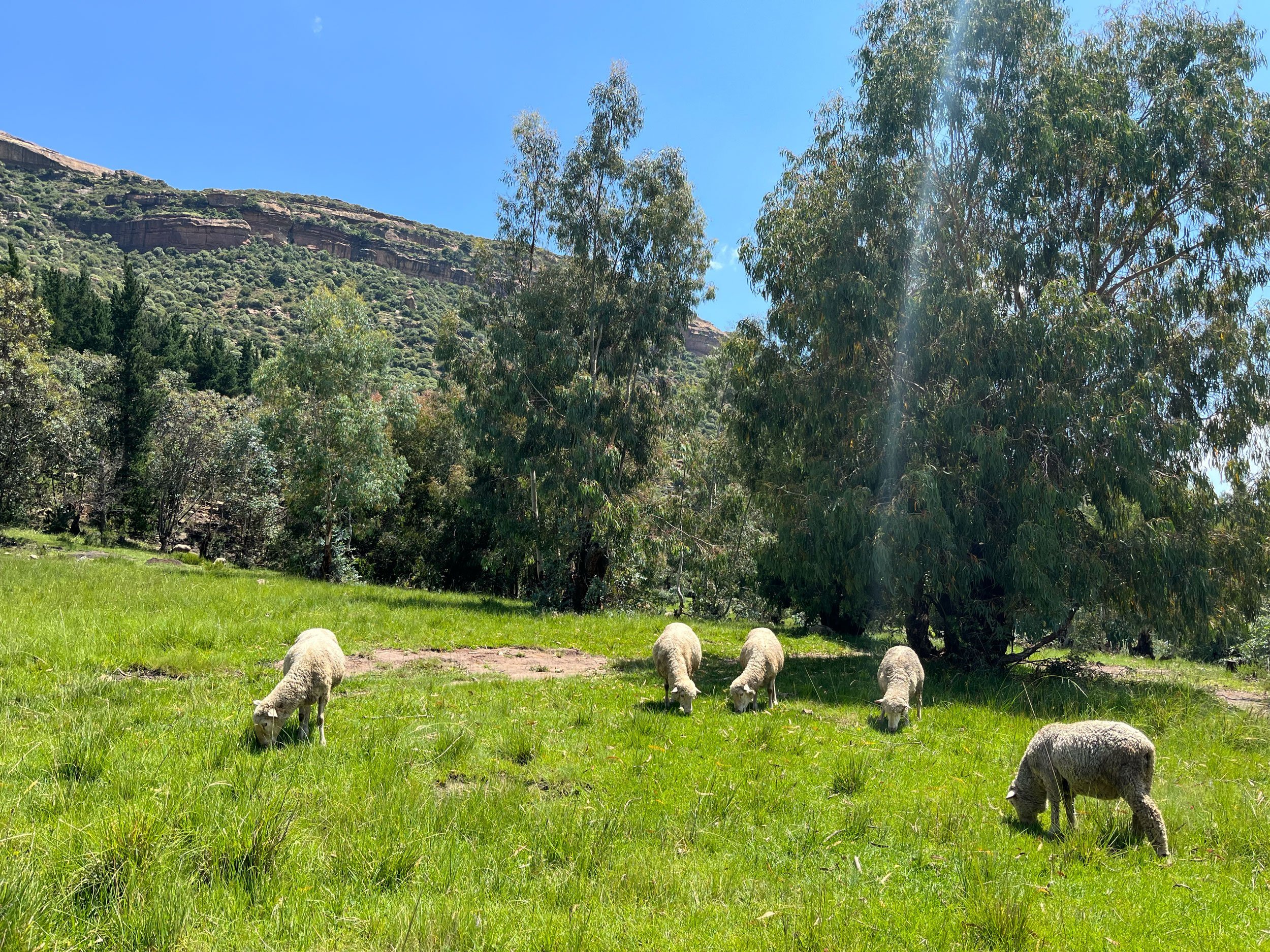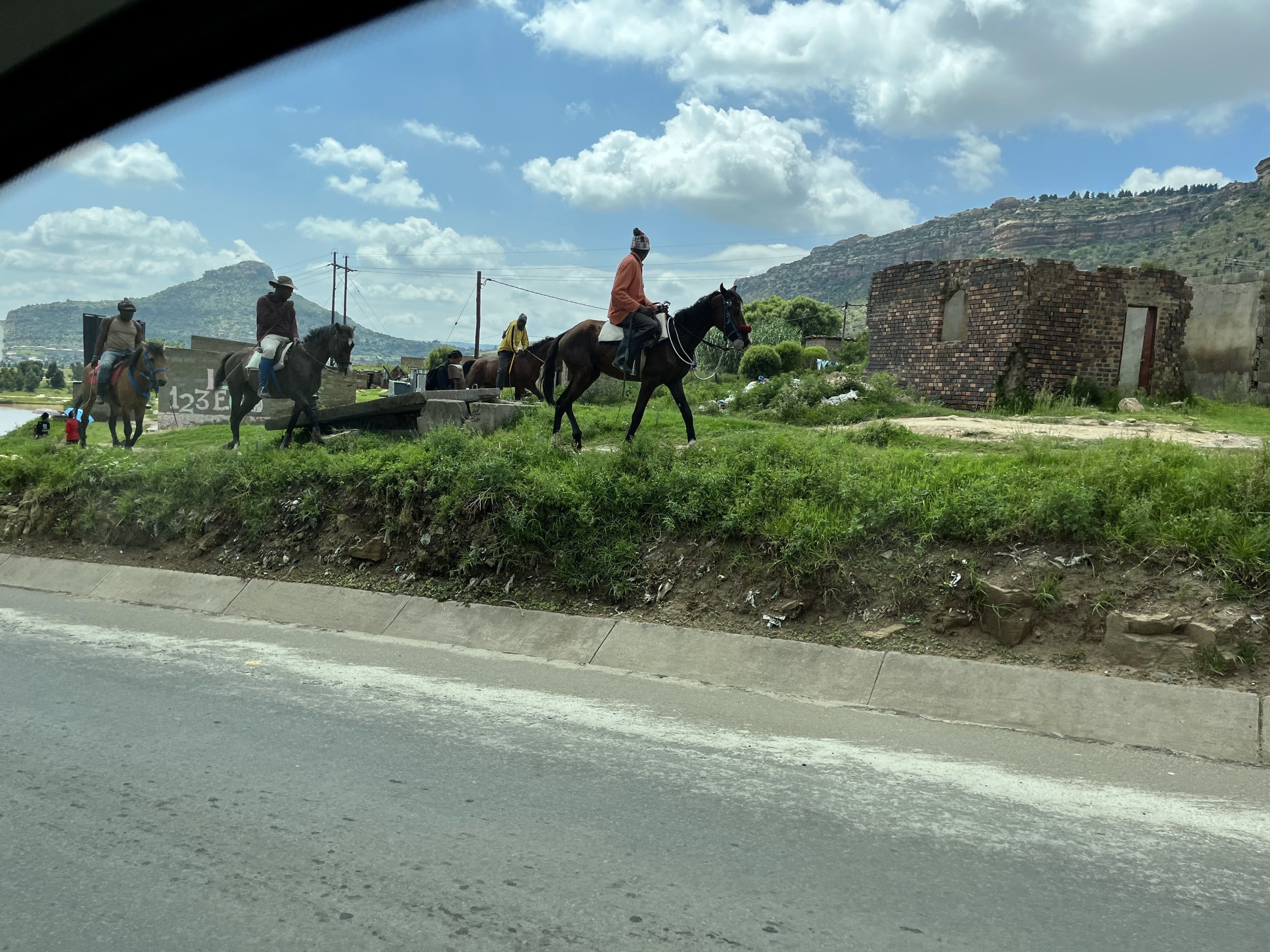
LESOTHO

Kingdom in the Sky
LESOTHO IS AN INDEPENDENT mountain kingdom that lies wholly within the borders of South Africa. Formerly known as Basutoland, the country was renamed the Kingdom of Lesotho when it achieved independence from Great Britain in 1966.
With a land mass of less than 12,000 square miles (about the size of Belgium) and a population of 2.2 million, Lesotho is among the smallest countries on the continent. Because of its lofty altitudes (more than 80 percent of its land sits 6,000 feet above sea level) and spectacular mountain ranges, Lesotho also is known as the Kingdom in the Sky.
The natural beauty of the country draws hikers, photographers and other visitors—more than one million every year, making tourism a growth industry for the country. In Lesotho’s highlands are the headwaters of the Orange (Senqu) River, the largest in southern Africa. The Lesotho Highlands Water Project harnesses much of the river water and generates electricity for export to neighboring countries.


Economics
& Public Health
Natural advantages aside, Lesotho is an impoverished country facing substantial economic and public health challenges.
More than 60 percent of the population is rural and makes its living on subsistence farming and livestock. Soil erosion, and alternating droughts and flooding have long hindered agricultural production, creating widespread poverty. Small-scale industries in the cities manufacture clothing, footwear and textiles. A large portion of the adult workforce crosses the border for better jobs in South Africa, often leaving children and other dependents behind.
The Covid-19 pandemic, coupled with wars in Ukraine and the Middle East, led to increased unemployment, chronic food shortages and a spike in inflation. At Ministry of Hope Lesotho, we have seen many of our staples, such as cooking oil and corn, double or even triple in price.
The impacts of poverty also can be measured in terms of diminishing health and educational outcomes. Lesotho has high rates of HIV (20.9 percent of population ages 15-49 in 2020) and tuberculosis (650 infections per 100,000 people). Many of the children at Ministry of Hope Lesotho arrive with one or more poverty-related illnesses.
Poverty & Education
Although public education is free through the 12th grade, the average child in Lesotho completes less than nine years. In secondary school, where students must pay tuition, only 37 percent of girls and 28 percent of boys complete the last year of schooling. Among children who have dropped out, more than 41 percent cited the high cost of schooling as a motivating factor. Very few poor children advance to college or university.
The children at Ministry of Hope Lesotho are an exception. Through the generosity of our supporters, we have been able to provide tutoring to our children and youth, pay for tuition, supplies and (in some cases) boarding for secondary school students, and help finance the college-level studies of our older youth.

